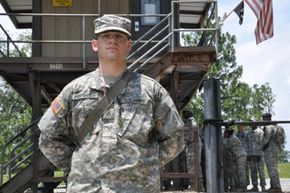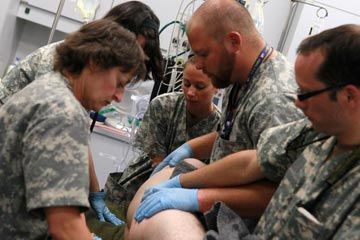It's an unfortunate misconception that many of the young men and women who join the U.S. Army or another branch of the armed forces do so because they have no other opportunities. Many believe the Army is the option people take when their career path hits a dead-end, or there's no money for college. But have you ever considered that joining the Army might actually open doors and help improve someone's career?
Similarly, if you've already made up your mind to join the Army, have you asked yourself what you'll do when you are discharged? Will you re-enlist or use your experience to get a job in the civilian world? As you think about your possible job opportunities and how they will compare to your military salary and benefits, you need to also consider how your Army experience will impact your career when you leave.
Advertisement
The Army accepts men and women between the ages of 17 and 35 for a variety of jobs [source: GoArmy.com]. If you're in good health and physical condition, have a high school diploma or equivalent, and are a U.S. citizen or resident alien, and have no plans to go to college, the Army is an excellent option for you. However, if you've just graduated college or completed your masters degree or higher, the Army might be just what you're looking for, as well.
Joining the Army will provide valuable experience and training unavailable to many in the civilian workforce -- and the training is free. This kind of invaluable education could make you more desirable to civilian employers once you're discharged. We'll explore the benefits of Army experience further on the next page.
Advertisement



